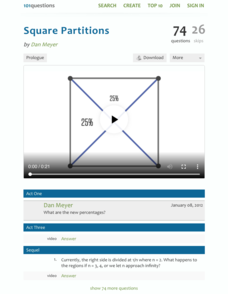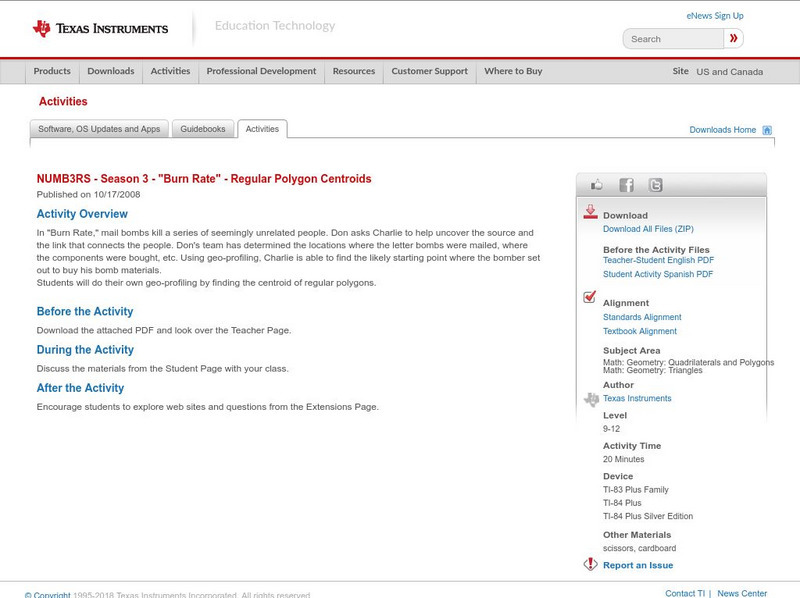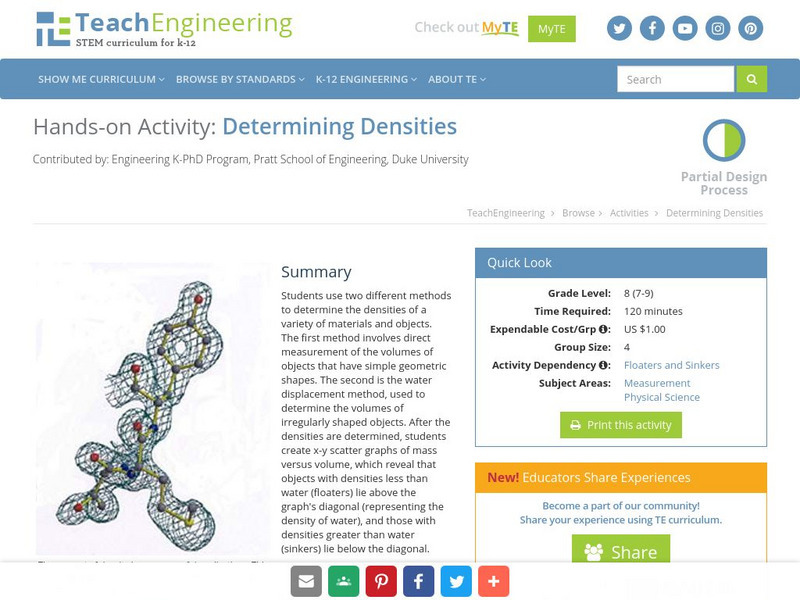101 Questions
Square Partitions
Challenge your classes while developing their problem-solving skills. A square is divided neatly into four equal triangles by its diagonals until one diagonal is moved from a vertex to the midpoint of one side. Now, scholars must devise...
Teach Engineering
Determining Densities
Don't be dense—use a robust resource. The second installment of a five-part Floaters and Sinkers unit has learners determine the densities of several objects. As part of the activity, they learn the displacement method for finding...
Illustrative Mathematics
Is This a Parallelogram?
If both pairs of opposite sides of a quadrilateral are congruent, is the quadrilateral a parallelogram? This task asks learners to determine the answer and to support their answer with a proof. The resource includes a commentary for...
Illustrative Mathematics
Area of a Trapezoid
Here is a straightforward example of how to apply the Pythagorean Theorem to find an unknown side-length of a trapezoid. Commentary gives additional information on proving that the inside of the trapezoid is a rectangle, but is...
Texas Instruments
Texas Instruments: Numb3 Rs: Regular Polygon Centroids
Based off of the hit television show NUMB3RS, this lesson shows students different ways to find centroids of regular polygons. The traditional way (using medians) is presented, as well as the triangulation method, the diagonals method,...
University of Cambridge
University of Cambridge: Nrich: Diagonal Trace
Develop problem solving skills working with pentagons and then check your results.
TeachEngineering
Teach Engineering: Determining Densities
Students will use two different methods to determine the densities of a variety of materials and objects. The first method involves direct measurement of the volumes of objects that have simple geometric shapes, while the second uses the...






